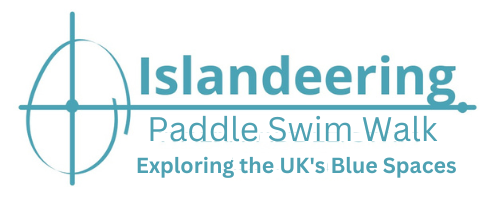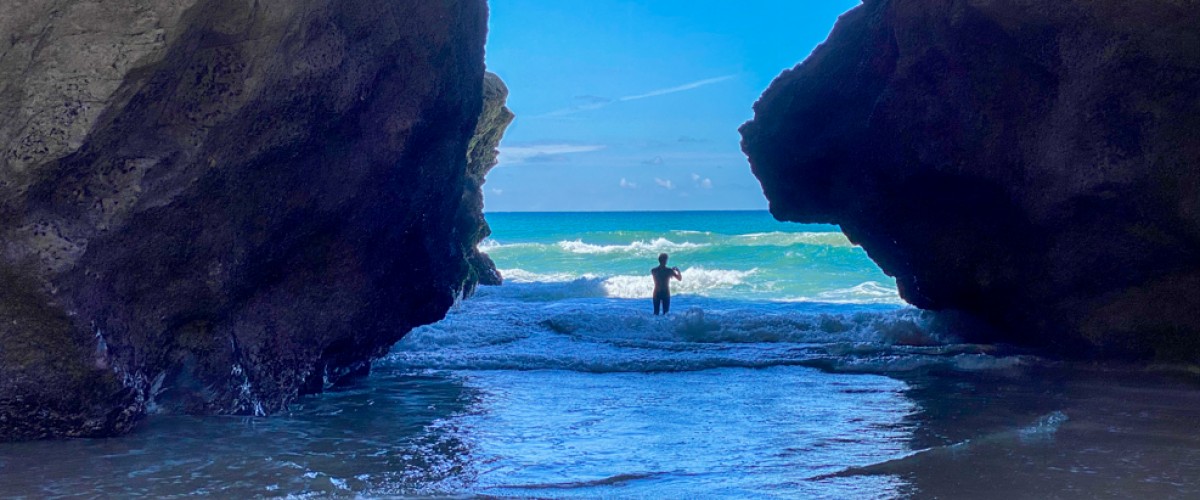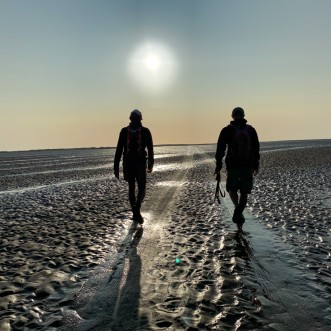It’s something we all know – that being in, on, under, and beside water is good for body and mind. The sounds and smell of water, its taste and touch and, of course some of the best views in the world. Have you ever wondered why though? Here we share some of the latest scientific research that explains that the health benefits of blue spaces – the sea, coastline, rivers, lakes, canals and even fountains – are not imagined but real.
Most of the research into the health and wellbeing benefits of blue spaces, known as blue health, has been conducted in the last five years or so. Initiated largely by a pan-European research initiative called, ‘Blue Health, to review existing data, a clear link between outdoor blue spaces and benefits for health, mental health, general wellbeing and physical activity was established.
Water has a psychologically restorative effect
Spending time in and around aquatic environments has consistently been shown to significantly lift our spirits and reduce stress, more than green space does. A visit to the ocean feels like letting go. Immersing ourselves in the waves, through paddling or swimming or just sitting and watching them, is mesmerising and allows us to switch on what Wallace J Nichols calls our ‘blue mind’ – the mildly meditative state people fall into when they are near, in, under or on water. An extensive 2013 study, where 20,000 participants recorded their sense of wellbeing in various locations, demonstrated conclusively that the sea and coast were by far the happiest locations.
How does water affect our brains?
Water increases the release of the feelgood neurotransmitters dopamine, serotonin, and oxytocin and decreases cortisol, the stress hormone. The colour blue alone correlates to the release of dopamine associated with euphoria, joy, reward and wellness.
Does it matter what type of blue space it is?
In the 2013 study participants rated large bodies of water higher than other aquatic environments for a greater sense of wellbeing, but the study also suggested that any water is better than none – so even fountains should work. A 2010 study found that images of built environments containing water were generally rated just as positively as those of only green space; researchers suggested that the associated soundscape and the quality of light on water might be enough to have a restorative effect
You can’t start early enough
A 2022 study concluded that childhood exposure to blue spaces is linked to better adult well-being. The findings suggest that building familiarity and confidence in and around blue spaces during childhood may stimulate an inherent joy of nature and encourage people to seek out recreational nature experiences, with beneficial consequences for adult mental health. This research suggests though that supporting children to feel comfortable in these settings and developing skills such as swimming at an early age can have previously unrecognised life-long benefits. More blue space experiences during childhood may be a viable way to support the mental health of future generations.
Urban blue space works too
A 2020 study found a significant improvement in wellbeing and mood for those walking through urban blue spaces compared to urban landscapes without blue space. Before, during and after the exposure to blue space, researchers measured self-reported wellbeing and mood, blood pressure, and heart rate variability. Results demonstrate significantly improved wellbeing and mood responses immediately after walking in the blue space compared with walking in the urban space. Even large puddles work.
Blue spaces don’t just affect our brains though
Many blue spaces offer open space, a break from the ‘clutter’ of buildings and, as such, more sunlight to boost our vitamin D levels. More than often these breathing spaces in the city offer less polluted air. Of course the coast is king for generally lower pollution and ‘better light’. We often hear that artists revere the light of the coast, maybe this is because of the vast horizon and lack of pollution so light levels are different?
We are more active in blue spaces
People who live by water tend to be more physically active – not just with water sports, but walking and cycling. A recent (2019) study found that those who live closer to the coast conduct more outdoor physical activity (especially walking) and feel healthier than those living over 50 km away.
IN CONCLUSION
It’s great to now have more scientific evidence behind by blue spaces make us feel so great. This website’s sole purpose is to share with you the special blue spaces in the UK – to walk, to paddle and to swim – to be the very best you can be.
Further reading
Blue Mind – How Water Makes You Happier, More Connected and Better at What You Do. Wallace J. Nichols
Blue Spaces – How and Why Water Can Make You Feel Better. Dr Catherine Kelly


